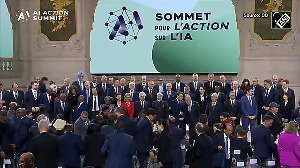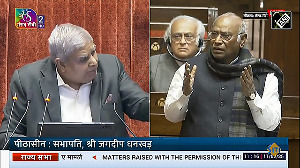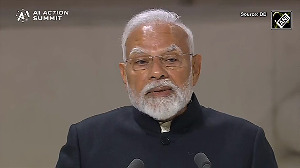With the World Trade Organisation members yet to arrive at a consensus on issues under the work programme, the revised document (popularly called Rev 3 doc) on fixing the framework for negotiations, expected this week, is likely to only lay down the broad roadmap for trade liberalisation talks in Geneva.
"The draft is unlikely to go beyond the earlier two drafts in terms of specific proposals. At the most, it will be a general roadmap, which will try to avoid any specifics on contentious issues such as agriculture," an Indian trade negotiator told Business Standard.
Commerce department officials said the framework was unlikely to provide an impetus to the negotiations, as was being made out by the WTO and major trading countries.
"At best it could be a starting point. But we do not expect much progress in the negotiations for the next 8-10 months, until after the US presidential elections in November," an official said.
The WTO General Council, which is meeting in Geneva next fortnight, is expected to clear the framework for negotiations. According to the work programme, charted out by the WTO membership when they agreed for talks in Doha in November 2001, the framework was to be in place by the end of 2002 for most issues on the agenda. Talks were to be completed by December this year.
In the absence of a consensus on most issues, with the US and the European Union taking a common stand against the interests of developing countries, the deadline has been extended on a number of occasions, with July 31, 2004, being the latest.
Indian officials were of the opinion that the US and the EU would be interested in pushing through the framework since their chief negotiators, Robert Zoellick and Pascal Lamy, respectively, were expected to demit office later this year.
Differences of opinion on key aspects like the extent of market access and subsidies are yet to be sorted out. In case of Singapore issues, comprising investment, competition policy, trade facilitation and transparency in government procurement, the members are divided over the fate of the subjects. This led to the collapse of the Cancun ministerial meeting in September last year.
While a section of the members led by the EU, Japan and Switzerland are in favour of continuation of the study programme under the WTO, others like Malaysia are demanding that the issues be scrapped.






 © 2025
© 2025